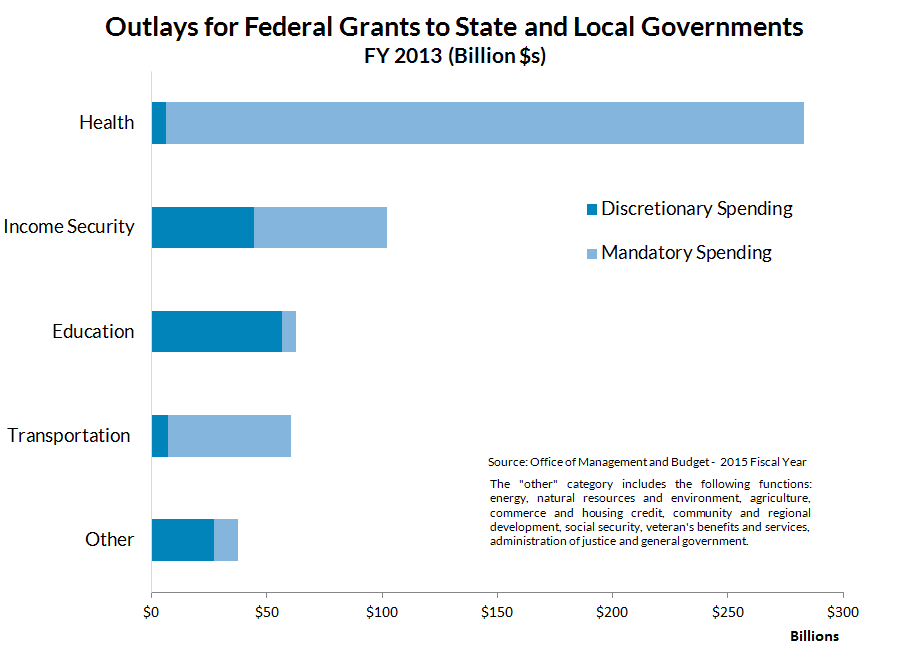The voices of Tax Policy Center's researchers and staff

In a provocative Washington Post column, Brookings Institution scholar Bruce Katz argues that the federal government is becoming irrelevant — especially to cities and regions where most Americans live and most economic activity takes place.
While Bruce rightly identifies some areas where the feds are fading, he overstates the phenomenon. The federal government remains the primary driver of domestic policy in the U.S.
True, a gridlocked Washington has become less relevant. And as any governor or mayor will tell you, the feds often get in the way. With its latest habit of kicking the can down the road—think one-year restorations of expired federal tax provisions or highway bills funded for just a few months at a time—Congress has wreaked havoc on state and local government revenue forecasts and capital budgets.
Bruce is also right that structural forces, like aging populations and rising health costs, combined with a budget largely on auto-pilot will continue to limit the federal government’s ability to respond to state or regional challenges. And surely the feds could reengineer the way agencies dole out funds to get the biggest bang for the buck.
Still, Bruce takes too narrow a view of the federal-state-local relationship. As founding director of Brookings’ Metropolitan Policy Program and co-author of The Metropolitan Revolution, Bruce is understandably focused on federal spending that could help spark city and regional economic growth. And to be sure, federal programs like education, job training, transportation, housing, and community development are shrinking to make way for Medicare, Medicaid, and Social Security commitments. This long run trend was made worse with the 2013 sequester, the kind of self-inflicted damage voters have come to resent and which we may see repeated next year.
But the loose collection of programs that fall under the rubric of domestic discretionary spending makes up just a sliver of benefits that flow from federal to state and local governments and eventually to individuals, families, businesses, and the larger economy.
In fiscal year 2013, the federal government directed $142 billion in discretionary grants to states and localities. But another $400 billion came through so-called mandatory programs, the largest of which was Medicaid, which accounted for more than $265 billion. On top of that, the federal government subsidized states and localities through the tax code to the tune of more than $100 billion (through the exclusion of interest payments on muni bonds and deductibility of state and local taxes).

More broadly, the federal government continues to drive big swaths of domestic policy. A majority of states are expanding Medicaid as envisioned under the 2010 Affordable Care Act even though the Supreme Court ruled it optional. And, although states and localities pay for three-quarters of total highway spending (including operations and maintenance), the feds pick up the tab for more than half of capital costs and hence influence what gets built where. An extra roughly $140 billion in the 2009 stimulus provided a critical life raft to states and localities when their own revenues were tanking.
Even a little federal money can go a long way. For instance, the $5 billion Race to the Top program drove 34 states to reform their public school accountability systems.
While the days of the Great Society may be long gone, the federal government is not going anywhere any time soon. And that’s good because states and localities cannot and should not go it alone.
Posts and comments are solely the opinion of the author and not that of the Tax Policy Center, Urban Institute, or Brookings Institution.
